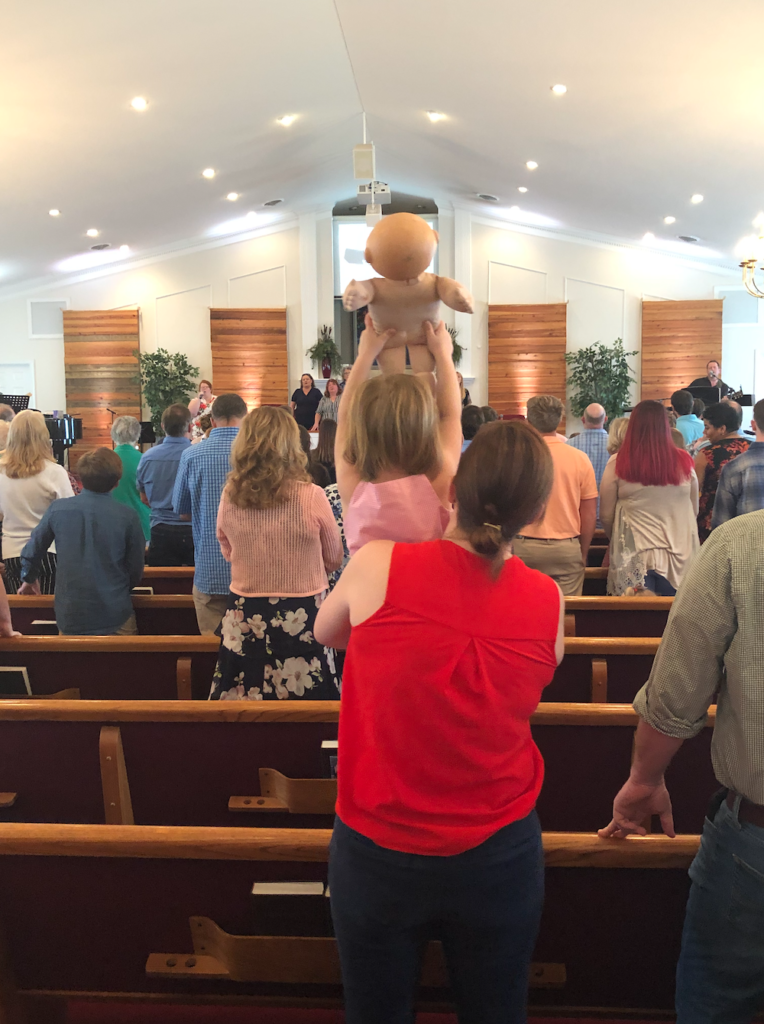
 ***There is a sermon link at the bottom of this page from a sermon I preached on Ecclesiastes 3, a few years ago.
***There is a sermon link at the bottom of this page from a sermon I preached on Ecclesiastes 3, a few years ago.
______________________
Life is constantly moving from one thing to another and we are in constant transition. When you are born your body radically changes daily. From there it’s walking, potty training, eating by yourself, then eventually reading, writing, driving, Calculus, girlfriends, college, marriage, kids, mini-vans, thinning hair, kids start dating, kids leave for college, etc. At every stage, just when you have it figured out, guess what? It’s time to change to something else. If 2020 has taught us anything, it is that life is going to change, and rarely does it go back to being “normal.”
The following are a few mistakes that we can make in dealing with transitions.
Mistakes of dealing with transitions of life:
Moving Forward Too Fast
This is when we are looking toward the next transition too soon.When I was in seminary there were those that would max out the amount of classes they could take. They rarely (if ever) left their rooms except to go to class. If you did happen to see these recluses, and were able to squeeze in a conversation, they constantly talked about how they wanted to finish school as soon as possible (yeah, no kidding).
They were missing “the seminary experience” in order to get to the “real world” of ministry. The whole purpose of seminary was to equip them for the ministry they desired to do, but in their rushing through the experience they were short circuiting the process of being equipped in order to move to the next stage. They were checking the boxes as fast as they could.
At every stage of life and in every time of transition there are things we are to learn, life lessons to experience, and people that we are to meet and engage in life with. If you move from stage to stage, and transition to transition, with never stopping to engage in the moment, then you are going to miss something very important in your life. But seriously, “When have you finally arrived?” At what point of success will you slow down and concentrate on the moment?
Holding On For Too Long
The second mistake is the opposite of the first. This is when we try to hold on to the past so long that it keeps us from moving with the flow of the present. It’s like we are anchored to the past, and the swirl of the current of life roars past us. If Stacy London and Clinton Kelly have taught me anything, it is that people get trapped in a time of their lives then they were happy or at least felt safe. But when they aren’t able to move forward in life (like when someone dies, a divorce, or some other tragic event) their fashion/dress gets stuck and they don’t move on. This is a visual picture of what happens when we don’t roll with the transitions, but emotionally (which we can’t see) it make take the form of shutting down, not trying, or just trying to disappear from society. Life becomes this dance of grabbing on the present, while letting go of the past – moment to moment.
People Are Important
Another mistake people make in dealing with transitions is Not Developing Relationships As You Go. Life (and ministry) is all about relationships, people, and how we are all connected together. It took me until my adult life to realize that the people who have been in my life weren’t just there (as trees in a landscape), they were there for me to develop meaningful relationships with.
In our self-centered lives we tend to view people as ways to get us to where we want to go; they become tools we use to help us advance in our goals, visions, or careers. If they can’t be of help to us, we tend to marginalize them out of our lives. This is a huge mistake because even if you perceive that a person will be in your life for a short period of time, you still should make an effort to get to know them, love them, befriend them, and invest your life in theirs. Who knows where it might lead and what the future holds? But also, what if we are in one season of life much longer than we had anticipated?
Not Enjoying the Moment
There are moments in my kid’s lives that I will always treasure. I have loved leading Joshua and Caleb in Scouts, having lunch with Isaac and picking him up from school, or doing Hannah-Grace’s hair for a dance recital when her mother had to go out of town.
It sounds cliche, but “stop to smell the roses.” Our kids are only in their transition for a moment and then they move on to something else. Each day is a gift, and each new change is an opportunity to keep a great relationship, start over, or make things right.
Transitions cause stress in our lives. We feel the need to make decisions, and our focus can become completely consumed by this need to take some action, make a final decision, or the feeling to just do something. During these times of transitions (especially during moments like today) we are not sure of what we need to do. In that time of stress, life still moves on, it doesn’t stop because we are not sure what we should be doing.
Ministry involves emotional work. Like nurses or police officers, pastors regularly engage in activities as a part of their day-to-day responsibilities where they must deal with other people’s problems, emotions, and behavior. They are expected to express love, compassion, emotion, or they are expected to reserve that emotion, to be professionally distant and to control it all like a switch.
So as the years go by, if we are not careful, our emotion switch gets stuck or even broken. Numbness and callousness sets in like a whiteout in the winter. We stop feeling, caring, and everything goes on autopilot. We are so “professional” that we can fool everyone, even ourselves.
But if we are numb on the inside, then we miss those moments of transitions that our kid’s need for us to be completely present. If you are at this point, and you are not able to enjoy the moment then stop what you are doing, take a break, pray, and focus on doing whatever it takes to regain your sense of feeling. One of the ways that I have found to manage that professional numbness is to focus on today (you can’t control tomorrow). I don’t know what God has in store for me in the future, but today I have responsibilities, children who need a dad, a wife that needs a husband, etc. If I can focus on that, and only that, then I can fend off the feeling of paralysis by analysis.
All of these things deal with finding the right balance between moving and staying still, holding on and letting go, building up and moving on (Ecclesiastes 3 puts it much better; see below). I would also recommend “Didn’t See It Coming,” by Carey Nieuwhof. While it doesn’t completely offer steps to solve this issue, it does give you a point of reference on the topic (in other words it is a helpful place to begin the discussion with yourself and others).
I have found that it has been my relationship with Jesus that allowed me to find that place between true joy through living out one’s purpose without slipping into numb professionalism and feeling overwhelmed by the magnitude of life.
Here is a sermon on Ecclesiastes 3 that I preached at Daybreak Community Church, many a moon ago. It also deals with the issue of change and how life stinks sometimes.
_________________________
Ecclesiastes 3 “A Time for Everything” (ESV)
For everything there is a season, and la time for every matter under heaven:
2 a time to be born, and a time to mdie;
a time to plant, and a time to pluck up what is planted;
3 a time to kill, and a time to heal;
a time to break down, and a time to build up;
4 a time to nweep, and a time to laugh;
a time to mourn, and a time to odance;
5 a time to pcast away stones, and a time to qgather stones together;
a time to embrace, and a time to rrefrain from embracing;
6 a time to seek, and a time to slose;
a time to keep, and a time to tcast away;
7 a time to utear, and a time to sew;
a time to vkeep silence, and a time to speak;
8 a time to love, and a time to whate;
a time for war, and a time for peace.
 Churches and businesses are drawing close to the time when they will begin to gather and open in groups once again. Pastors, staffs, and business owners are going to make decisions regarding reopening their doors and gather in groups. While they have gained new ways of doing things (Zoom meetings, social distancing, sanitizing, etc.) its’ natural tendency is to go back to “normal” — but they are in a day that their “old normal” just can not continue. Churches and businesses have to change, but it is the vision of the organization that will allow it move through these unknown and treacherous times.
Churches and businesses are drawing close to the time when they will begin to gather and open in groups once again. Pastors, staffs, and business owners are going to make decisions regarding reopening their doors and gather in groups. While they have gained new ways of doing things (Zoom meetings, social distancing, sanitizing, etc.) its’ natural tendency is to go back to “normal” — but they are in a day that their “old normal” just can not continue. Churches and businesses have to change, but it is the vision of the organization that will allow it move through these unknown and treacherous times. So church is starting back and for a short season we are following social distancing and staying together during the entire service. Part of the new-normal is the recognition that your children will be with you during the service, and most churches have elected to keep the children in the services. So, there you are, in the service, and your little ones are crawling under your feet, making clicking noises during the prayer time, and you are completely distracted.
So church is starting back and for a short season we are following social distancing and staying together during the entire service. Part of the new-normal is the recognition that your children will be with you during the service, and most churches have elected to keep the children in the services. So, there you are, in the service, and your little ones are crawling under your feet, making clicking noises during the prayer time, and you are completely distracted.